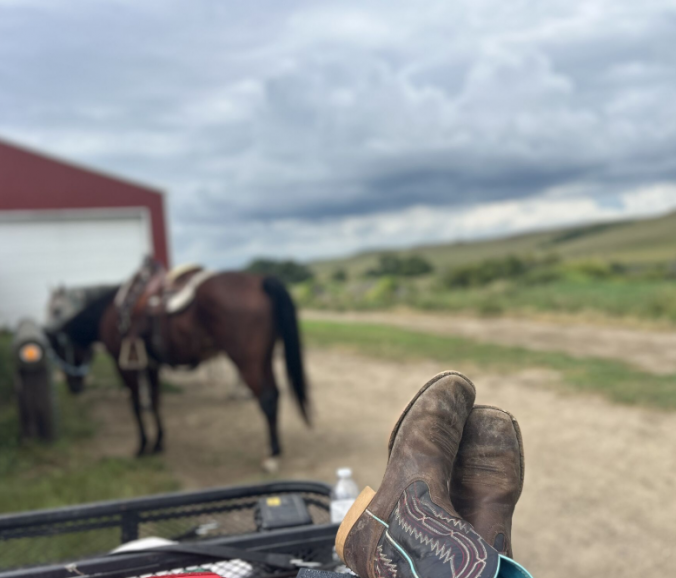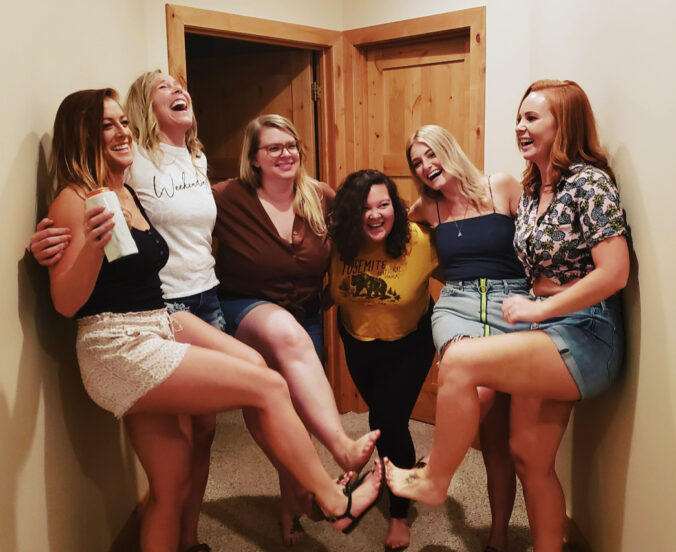There are seasons in life when nothing is technically wrong, and yet something inside us begins to shut down.
From the outside, things may look stable enough. We’re functioning. Showing up. Parenting. Working. Meeting responsibilities and doing what needs to be done. But internally, there’s an exhaustion that is subtly whispering at us and never seems to go away…Where something feels off, wrong, or unsettled. A sense of dullness. A persistent questioning we can’t quite silence.
When I started writing this blog, I coincidentally stumbled across this quote that felt relatable:
“Depression is sometimes the soul’s way of rejecting the life you are forcing yourself to live. It is not failure; it is misalignment. Your spirit shuts down when you are too far from your purpose, people, or path.”
I have reread this so many times…And for so many people I have talked to, especially those who have spent years in survival mode, misalignment rarely arrives dramatically. Instead, it shows up quietly: as fatigue, numbness, or a restlessness that feels inconvenient or confusing. It asks us, often uncomfortably, whether we are willing to examine why we feel depressed, unsettled, or disconnected, and whether we may be farther from where we want to be than we realize.
And sometimes, misalignment reveals itself through unexpected moments.
These moments can take many forms:
- an unplanned life change
- a professional crossroads
- a roadblock that forces us to slow down
- a new opportunity that doesn’t quite fit but you can’t stop thinking about
- an unexpected and incredible connection with another person
- or simply the realization that what once worked no longer does
We often rush to explain these moments away, labeling them as stress, distraction, or dissatisfaction. The moments that give us direct information on what purpose, path or people we should let enter our lives even when it is not in “the plan”. But often, these experiences are signals. Not necessarily telling us what to choose, but showing us what we’ve been tolerating.
In trauma-informed work, we talk about how the nervous system responds to relief as powerfully as it responds to threat. When something enters our lives and offers ease, curiosity, or emotional clarity, especially after prolonged stress, the body pays attention.
That “something” can be a person or an opportunity. It can be a season. A pause. A glimpse of a different way of being.
These are liminal experiences; not fully formed, not always actionable, but deeply eye-opening. Sometimes these experiences and moments arrive to be chosen or pursued, and sometimes they simply arrive to reveal.
The Unfinished Room Theory
There’s a metaphor I heard recently. And as a visual person, this resonated with me:
Every experience we encounter walks us into a new room inside ourselves. Some turn on the lights. Some move the furniture. Some leave halfway through rearranging things.
People do this.
So do moments.
Memories.
Opportunities.
So do transitions, disruptions, and awakenings.
But none of those rooms ever disappear.
They remain half-shaped, half-remembered, quietly influencing how we love, how we trust, how we show up, how we grow and how we make choices. These new moments and experiences don’t meet a blank space in our house; they step into rooms that have already been built.
The more aware we are of our internal layout, the more freedom we have to choose what stays, what shifts, and what finally feels like home.
Let experiences inspire you. Let them rearrange things. Notice what they leave behind. Allow yourself to step into what feels scary and unknown, even if it is just thinking about the unexpected twists and turns. We don’t have to tear down every room when this happens, but we make space for what feels like it entered intentionally.
And remember, it is still your house.
Choice Fatigue and Living Too Long in Survival Mode
One of the least talked-about consequences of prolonged stress (relational, occupational, emotional) is choice fatigue.
When someone has been navigating high demand or emotional strain for years, even imagining a different way of being can feel destabilizing. Not because it’s wrong, but because the system is tired. Decision-making becomes heavy. Presence becomes difficult. And even thinking about change feels like a massive stressor.
In these moments, the task isn’t to make sweeping changes. It’s to get honest about what the body has been enduring, and what it can no longer ignore.
This is where the work of creating your truest life begins.
Not through urgency or fantasy. But through listening; paying attention to what’s entered your house.
Not every feeling needs to be acted on and not every moment of clarity requires immediate change. Not every connection or opportunity is meant to become a permanent fixture and may exist just to inform. But at times, these things do exist to completely remodel and transform our lives, and point us towards questions we avoid:
- Where am I overriding myself?
- Where have I normalized emotional strain?
- Where am I surviving rather than living?
- What am I avoiding? What do I fear?
- What in my life is causing me to be unhappy, and am I willing to continue that way?
Coming Home to Alignment
Awakening through honest conversations with ourselves may not feel empowering at first. Often it feels destabilizing. It can come with grief for versions of ourselves that adapted to survive, and fear about what honoring our truth might cost.
Awareness is not betrayal. Releasing denial can be deeply freeing; it is not failure. Allowing our perspectives, or certain people, experiences, or moments, to rearrange the rooms of our inner house may be exactly what we didn’t know we needed. These moments are invitations.
Personally, I do not believe anything happens by accident; everything that enters your life is on purpose. And to step into your truest life is not to erase the rooms that intentional moments, roadblocks, opportunities or people helped form.
Stepping into your truest life is to decide, with clarity and compassion, which ones you will continue to live in.
-keep shining





Recent Comments